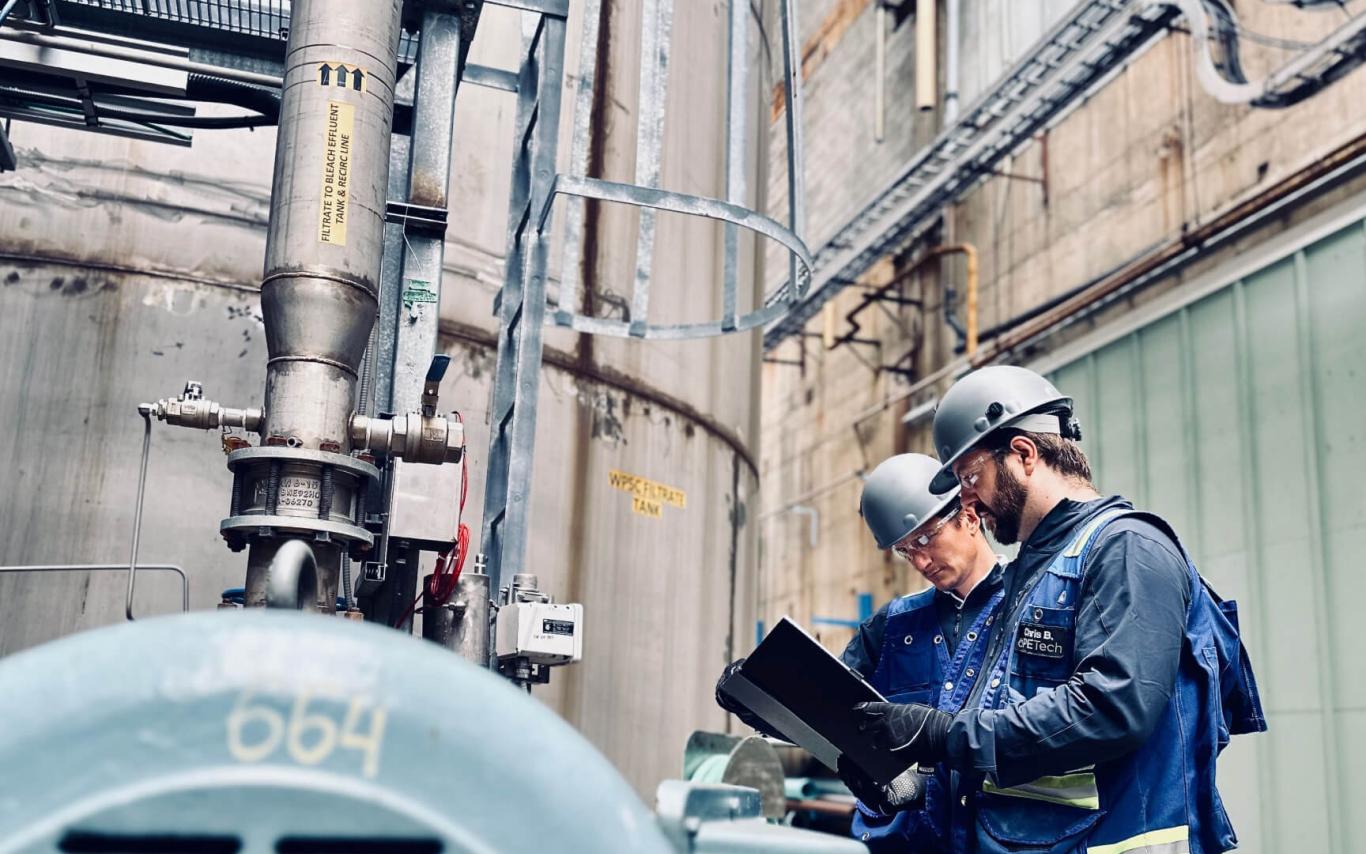PE Tech was retained through the BC Hydro Low Carbon Electrification (LCE) & Load Displacement (LD) programs to carry out a pre-design study of equipment modifications to facilitate the transfer of geothermal energy to the biomass dryer on the client’s site. The current biomass dryer is powered by three direct fired natural gas burners; however, the presence of nearby geothermal wells provides an opportunity to utilize this natural energy source to pre-heat the dryer airflow and offset fossil fuel use. PE tech identified a variety of design alternatives and analyzed each for energy transfer efficiency, emissions reduction potential, and capital cost. Each option was then weighed against current operational costs and carbon emissions to bring the most favourable design into focus.
To enhance operational safety, the client prioritized using indirect heating for the dryer. The plan involves leveraging hot geothermal water to indirectly heat dryer air via an in-duct heat exchanger. However, this geothermal water alone couldn't achieve the necessary air temperature, necessitating a secondary heating stage. With a focus on moving away from fossil fuels, two alternatives for this additional heating were suggested. The first was a medium-temperature electric hot water boiler for circulating pressurized hot water. The second involved using wood from the pellet plant to power a biomass boiler, which would generate steam for both heating and electricity production, covering the plant's power needs. Of these, the electric boiler emerged as the more feasible option, promising a notable return on investment in just 4.5 years. Although the biomass boiler was a compelling concept, its high upfront cost couldn't be offset by the relatively low electricity prices in BC. However, in areas with higher electricity costs or less eco-friendly energy sources, the biomass boiler could be an excellent alternative. This approach not only offers significant energy and cost savings but also aligns with the client's sustainability goals.
